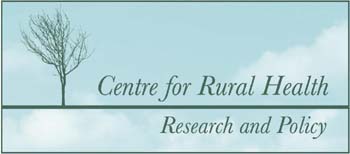A new study published today and conducted by the University of Aberdeen outlines the complexity of delivering out-of-hours medical care in remote and rural Scotland.
The study Out of Hours Care in Remote and Rural Scotland: Identifying Sustainable Strategies for Change was undertaken by the University’s Centre for Rural Health prior to the introduction last year of the new General Medical Services (nGMS) contract, which gave GPs the option of opting out of providing out-of-hours (OOH) care.
The study puts some perspective on what has been a time of significant change and the findings raise issues of continuing relevance to the delivery of OOH care.
Factors found to impinge on delivery of out-of-hours care in rural areas include:
· geography and limitations in the transport network
· a sparse population distribution with a large proportion of older, less mobile people
· political drivers (such as contractual changes and working time legislation)
· the existing infrastructure of services
· the availability of suitably trained health professionals and their willingness to work out-of-hours
The reports documents the opinions of GPs on OOH issues, in particular the impact that nGMS would have on service delivery.
David Heaney, Senior Research Fellow at the University’s Centre for Rural Health, said: “The structure of out-of-hours services in remote and rural areas prior to the introduction of the new General Medical Services contract had evolved according to local circumstances.
“GP co-operatives had been an important development where geography allowed, but delivery in remote and island areas remained practice based with much remaining dependence on single-handed GPs.”
The out-of-hours commitment prior to the introduction of the new General Medical Services contract had a significant impact on the working and personal lives of GPs. For some GPs, the commitment to out-of-hours was associated with perceived poor performance, particularly the day after being on call. It impacted on general well being, and restricted and complicated personal life. Others grudgingly accepted OOH as part of the package of being a rural GP.
GPs had some concerns about the introduction of the nGMS. Mr Heaney added: “Major changes in service delivery were being introduced within a short time scale. Rural GPs were uncertain about the implications of the new contractual circumstances. Many were unsure also about the future of rural general practice, which was perceived as a way of life.”
The report makes a series of recommendations:
· Creative solutions that fit with the goals of overall out-of-hours re-design need to be identified for the most remote areas. Smaller, incremental changes may be more appropriate.
· A variety of ideas and proposals emerged that require exploration. These include improving communications and technology; providing more support in terms of staffing; increasing the role of community hospitals; the introduction of mobile out-of-hours bases; further expansion of community based initiatives and new forms of multi-disciplinary training.
· Re-design of services in remove and rural areas needs to be across sectors – “joined-up” thinking is required and health cannot be examined in isolation.
· A number of requirements (such as adequately trained staff and finance) need to be in place before a quality service that is safe, acceptable, accessible, equitable and value for money can be delivered.
· The new OOH services need to be systematically evaluated.
Mr Heaney, who wrote the report, added: “The new GMS contract has meant significant change in some areas and the impact is as yet unknown. The delivery of OOH medical care in remote and rural Scotland remains a challenge. Finding localised appropriate solutions for relatively small populations will be time consuming, expensive and require flexibility, imagination and no short measure of political will.”


